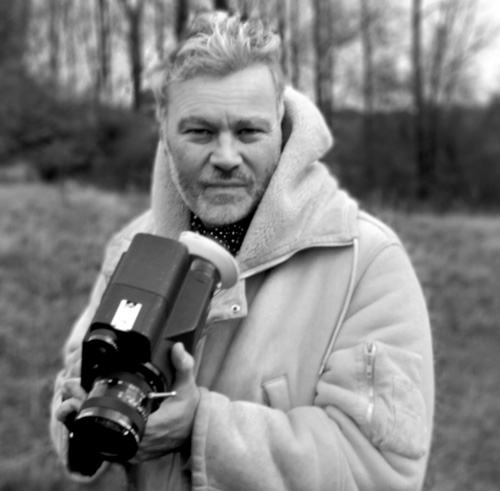THE PROPHET
Great Britain, 2011
75 minutes
directed by: Gary Tarn

“The Prophet” is a new documentary venture by the author of the cult film “Black Sun.” Gary Tarn once again creates a fascinating visual essay inspired by the free camera of Dziga Vertov and famous documentaries of Chris Marker and Werner Herzog.
The film blends the visual documentary narrative together with the verses from the book “The Prophet” by Khalil Gibran, an American poet, painter and philosopher of Lebanese origin. Written in the form of poetic orations addressing the great questions of life, the book became seminal soon after it was first published in 1923. The film consists of a series of short sequences that reflect the topics of each of these orations. This hybrid documentary conjures up an imaginary and unique 21st century city by combining footage shot around the world – in New York, Beirut, Milan, Belgrade and London. The visual study directly juxtaposes inhabitants of various cities, while the verses penetrate deep below the surface of the images.
This composite of different film and digital footage formats gives rise to an unusual vision of the modern world. Some of the first shots of this documentary were filmed in Belgrade – Gary Tarn documented various moments with his 16mm camera while being a guest at this very Festival. Gary Tarn again composes the soundtrack in a unique manner that he developed in his film “Black Sun”; this time he combines the voice of the famous British actress, Thandie Newton, and music performed on the cello, guitar, electronic instruments and by the orchestra.
An uninhibited eye observing the world through the lens of poetic wisdom.
Selector’s Word: Gary Tarn has this unique ability to make films that have a flow of images and words that can take you anywhere because you are carried by a tone or an atmosphere that makes you ready for surprises the whole way through the story. A true artist he is indeed.
www.theprophetfilm.com
Gary Tarn

Gary Tarn is a self-taught musician and filmmaker, born in 1962 in London, England. He started to play and compose music at the age of seven, was performing in a punk band by the time he was fourteen, and by his twenties was an accomplished music producer and multi-instrumentalist. He studied the music of Indonesia, Africa and India, as well as the work of European composers. He has been working as a composer for film, television and commercials since the early nineties. Growing up with punk rock as a teenager, he still lives by the same anything-is-possible aesthetic.
SELECTED FILMOGRAPHY
BLACK SUN, 2005
THE PROPHET, 2011


















